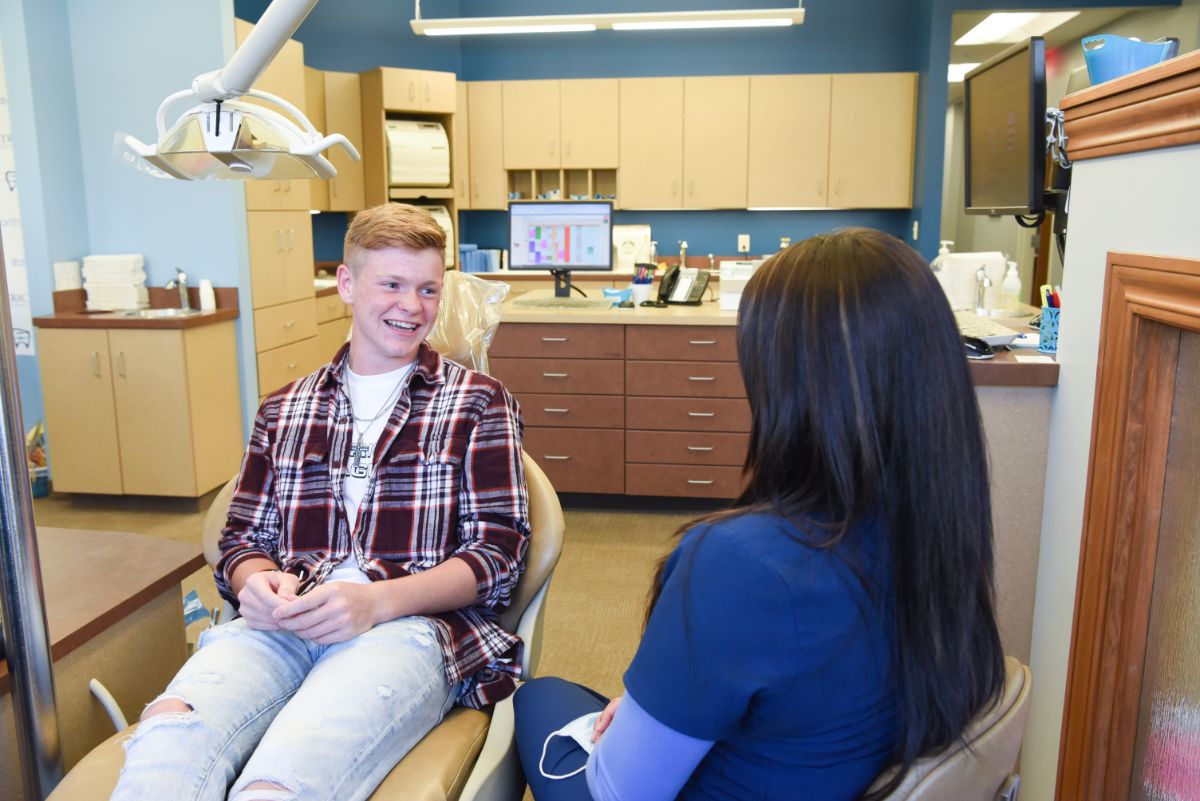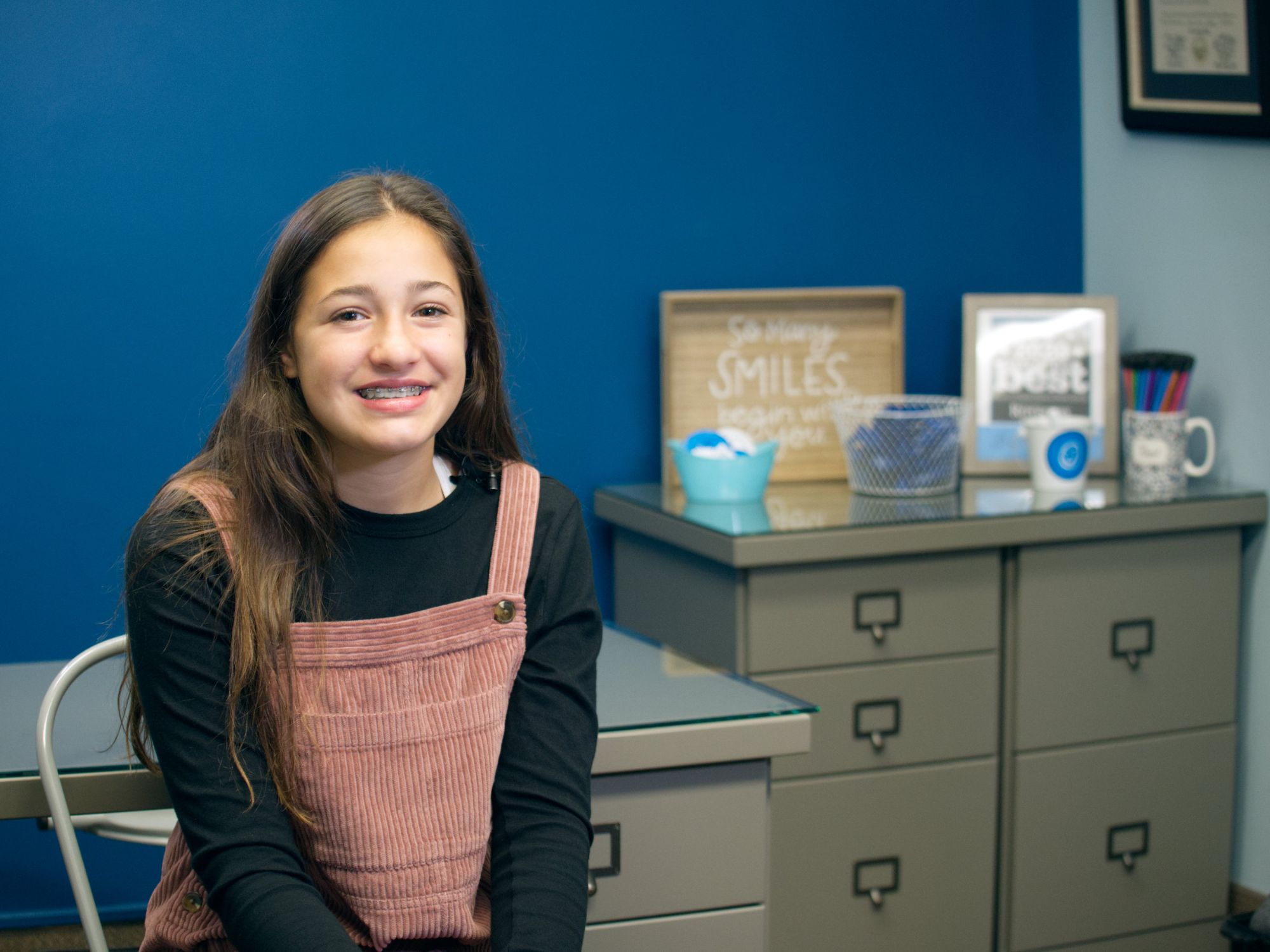Here at Dietrich Orthodontics, many parents ask how they can tell if their child will need orthodontic treatment. Unfortunately, there’s no easy answer to this question, since many factors must be considered. These include the child’s age, how their teeth and jaws are aligned, how their teeth and jaws are developing, and the desired results. Recognizing and treating your child’s orthodontic issues is what we’re here to do!
The best way to address all of these items is an early orthodontic evaluation. The American Association of Orthodontists recommends every child see an orthodontist at 7 years old. At this age, most children will have enough dental landmarks in place that their teeth, jaw, and bite can be assessed for orthodontic treatment.
There are several common issues that an orthodontist like Dr. Dietrich will be looking for during this initial evaluation, regardless of the age of the child. Let’s take a closer look at some of the things we see most often in our patients!
Crowded teeth
Healthy teeth and gums are essential to your child’s oral health, but crowded teeth can make it difficult to brush and floss effectively. This increases the chance of tooth decay and cavities. If your child has crowded teeth, we can move them into a better position in small increments over time. This will result in a smile that’s easier to clean. Treatment can even relieve chewing and speech difficulties!

Gapped teeth
Gaps in teeth are very common, especially in children. They can happen for a variety of reasons, from genetics to bad oral habits like thumb sucking or extended pacifier use. If your child has a bit too much space between their teeth, Dr. Dietrich will identify the underlying cause, then create a personalized treatment plan to close the gaps. This will improve the overall appearance of your child’s smile.
Open bite / Habit
With an open bite, the upper and lower rows of the front teeth don’t touch or close when smiling or chewing. Many open bites come from extended thumb sucking in childhood, which can cause the teeth to grow into a noticeably rounded formation. Most thumb habits are easy to break with a gentle, non-pokey appliance. The sooner the child stops the habit, the more the teeth will revert to where they were supposed to be, to begin with.
Deep overbite
When a child has a deep overbite, the upper front teeth overlap the lower front teeth too much. A deep overbite is very detrimental to the teeth and potentially the health of the jaw joints. The lower front teeth can be significantly and prematurely worn down from this positioning. It can also have an impact on face shape and appearance by aging the face with collapsed lips which can make the chin and nose more prominent. Correcting a deep bite misalignment like this will greatly improve the functionality of your child’s teeth and dramatically improve the appearance of their smile!
Underbite
An underbite occurs when the bottom teeth protrude in front of the upper teeth (a front-to-back problem). There are several treatment options available for patients with underbites at Dietrich Orthodontics. These include:
- A reverse-pull face mask to pull the jaw forward: this orthopedic type treatment must be done early before age 10 to be effective.
- Traditional braces with rubber bands to adjust the misaligned teeth. An additional spring appliance may be used if rubber bands aren’t enough.
- Jaw surgery: this is used to correct the most severe underbite cases
These treatments will make it easier to smile, eat, and even breathe more effectively.
Excessive Overjet
If a child has an overjet that is too large, their top front teeth will protrude far beyond the bottom front teeth. This is commonly referred to as “buck teeth.” Teeth that stick out too far are much more likely to have trauma occur to them (a fall, a ball to the face, etc.). The child’s age and specific needs will determine what treatment approach we take, but options will usually include:
- bite correction devices
- traditional braces
- removable orthodontic appliances
- tooth removal
Once we decide on the correct treatment for your child’s overjet, they’ll be left with a beautifully balanced smile after it’s completed.
Missing teeth
Gaps can exist because of congenitally missing teeth or a loss of a tooth due to injury or disease. In some cases, we are able to close the space left by the missing tooth. Other times, our skilled team will properly position the adjacent teeth and the overall bite to ensure the success of a future dental implant (implant done by an oral surgeon, not the orthodontist).

Give your child’s smile a head start at Dietrich Orthodontics
At Dietrich Orthodontics, we’re committed to providing personalized care for every child we treat. That includes recognizing and treating your child’s orthodontic issues! During your child’s evaluation, Dr. Dietrich will create a customized treatment plan based on their unique smile needs and the desired results. Our goal is to give every patient a rewarding and stress-free experience, from their first appointment to the last!
If you’ve been wondering if your child would benefit from orthodontic care, our team would love to meet you both and take a look at how their smile is developing! If you’re near Canton or Alliance, get in touch today to schedule a FREE consultation with Dr. Dietrich. Whatever your child needs, we’ll give them the best start towards a lifetime of confident smiles.
